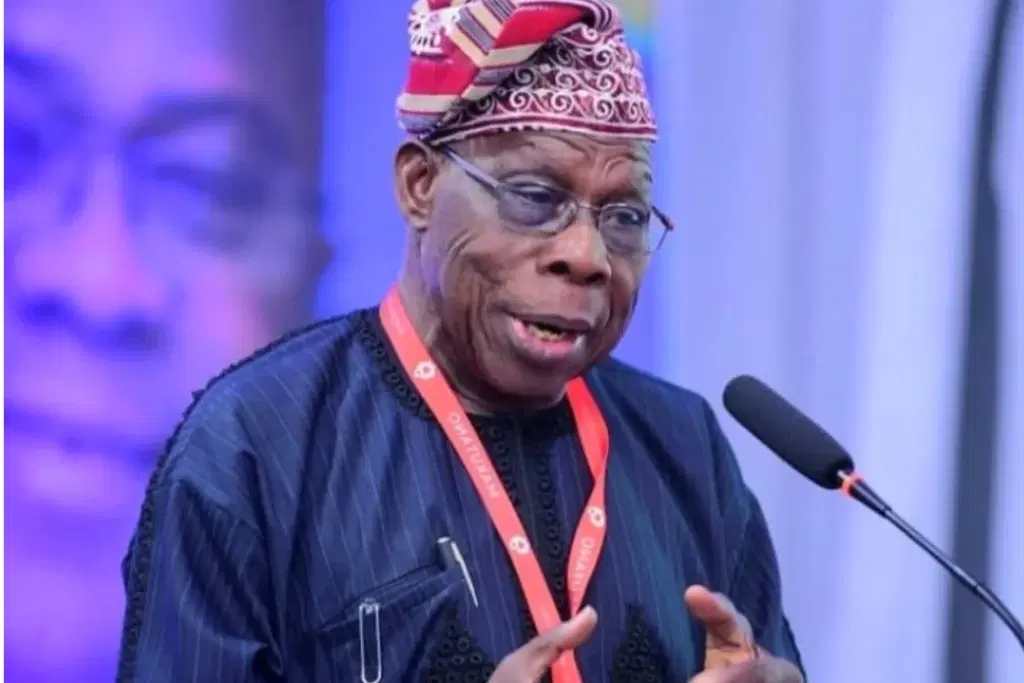…Says former Kaduna governor wasn’t mature enough to lead Nigeria in 2007
Former President Olusegun Obasanjo has disclosed that he once rejected a proposal suggesting Nasir El-Rufai, then Minister of the Federal Capital Territory, as his successor at the end of his administration in 2007.
Obasanjo said he declined the recommendation because he believed El-Rufai, who had served under him as both Director-General of the Bureau of Public Enterprises (BPE) and later as Minister of the FCT, was “not yet mature enough” to handle the complexities of leading a country like Nigeria.
The former president made the revelation on Friday during the second edition of the Ajibosin Platform Annual Symposium held in Abeokuta, Ogun State.
Obasanjo’s remark came in response to a speech by former Minister of Aviation, Osita Chidoka, who delivered the keynote address at the event.
Chidoka had recounted how El-Rufai introduced him to Obasanjo at the age of 34 — an encounter that led to his appointment as Corps Marshal of the Federal Road Safety Corps (FRSC).
Midway through Chidoka’s speech, Obasanjo interjected, recalling an omitted part of the story.
“Let him tell you,” Obasanjo said with a smile. “He didn’t mention that when I was leaving government, he was pushing that his friend, El-Rufai, should be brought in as my successor.”
Turning to Chidoka, he added teasingly, “No be so?” — to which the former aviation minister nodded in agreement.
Obasanjo continued, “I did not yield to the pressure. Later, he asked why I didn’t agree, and I told him El-Rufai needed to mature. Many years later, after seeing his performance, he came back to me and said, ‘You were absolutely correct — El-Rufai needed to mature.’”
The former president, however, commended both men and other members of his former team, describing them as “individuals with special attributes” who contributed immensely to the success of his administration between 1999 and 2007.
‘Leadership Requires Character and Training’
Speaking on leadership, Obasanjo stressed the importance of character, exposure, experience, and training in public service.
“It’s only in politics that I found out there is no training for leadership,” he said. “Even among armed robbers, I was told there is apprenticeship. But in politics, there’s no training for leadership. That’s not good enough.”
‘Nigeria’s Problem Isn’t Lack of Ideas’ — Chidoka
In his keynote address, Chidoka argued that Nigeria’s enduring challenges stem not from a lack of ideas, but from the failure to build systems and institutions that ensure accountability and continuity.
“Leadership finds its true measure not in speeches or charisma, but in the systems it leaves behind,” he said. “Moral conviction must translate into the everyday machinery of governance — rules, routines, and institutions that make competence predictable and corruption difficult.”
According to him, “Nigeria’s problem has never been the absence of ideas; it is the absence of systems strong enough to outlive their authors.”
Chidoka called for a stronger framework to measure governance performance through results rather than rhetoric.
“We must make leadership accountable by building national dashboards and accountability systems that track every promise, every budget, every outcome,” he said. “Institutions that evaluate government performance must be empowered to expose complacency.”
The event, which drew political leaders, scholars, and civic advocates, explored the theme of “Leadership, Governance, and Institutional Renewal in Nigeria.”
The post Obasanjo: Why I rejected proposal to make El-Rufai my successor appeared first on Vanguard News.

